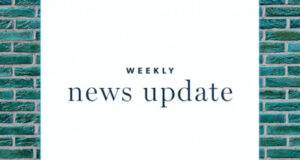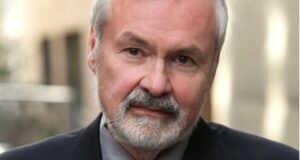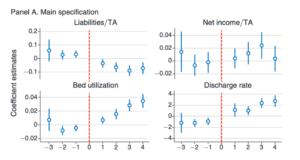
By KIM BELLARD
I must admit, last week’s election took me by surprise. I knew all the polls predicted a close race, but I kept telling myself that the American I believed in would not elect such a man, again, knowing full well all the things he has said and done – in his personal, professional, and political lives. I was giving us too much credit.
Democrats might tell the public that Wall Street was hitting record highs, that GDP growth was among the best in the world, that unemployment was low, and that inflation was finally back under control, but voters didn’t believe them. For most people, the economy isn’t working.
When two-thirds of voters say the country is on the wrong track (NBC News), when almost three-quarters of Americans are dissatisfied with the way things are going in the U.S. (Gallop), when 62% of voters think the economy is weak and 48% say their personal financial situation is getting worse (Harvard CAPS/Harris) – well, threats to democracy tomorrow don’t compare to the price of eggs today.
Let’s face it: we are on the wrong road. We’re not on a road that is good for most people. We’re not on a road that is getting us ready for the challenges and opportunities that the 21st century is bringing/is going to bring us. And we’re kidding ourselves about the America we believe in versus the America we actually live in. Our views about our country are delusional, they’re disorganized thinking, they may even be hallucinations. I.e., they’re schizophrenic.
For example:
The land of opportunity: The great thing about America is supposed to be that anyone can make it, if they just work hard enough. And there is some truth to that; everyone has their favorite rags-to-riches story. Americans like to believe we have high economic mobility, but, in fact, we’re pretty mediocre, ranking only 27th in the last Global Social Mobility Index (Western European countries do particularly well). “Intergenerational mobility, on average, is significantly lower in the United States than in most other developed countries,” says Professor Raj Chetty, the guru of the field. Mobility matters where you live, how good local schools are, and what kind of family structure you grow up in.
Robust middle class: If lower- and middle-income workers feel they are not benefiting as much from economic growth as they used to, they’re right. Most workers have seen, essentially, wage stagnation over the past fifty years, in part due to increasing share of the economy going to executives. CEOs make, on average, almost 200 times as much as workers do, and the ratio increasing. As a result, the U.S. has some of the highest income inequality in the world. Unions – one of the few counterweights to income inequality – have been on the decline for decades, although 54% of US adults think that is bad for the country and 59% think it is bad for workers.
The wealth inequality is even worse. According to the Fed, the top 10% of US households have 67% of total wealth; the lowest 50%, only 2.5%. Blacks owned 23 cents for every $1 white families have; Latinos only 19 cents. Intergenerational transfers perpetuate the gaps.
Liberty and justice for all: America is the jailor of the world. We have about 1.8 million people incarcerated; China is next, with about 1.7 million – but, of course, it has over four times as many people. Think about that. We’ve created a private prison industry to house them all, so someone can get rich off them. Even worse, our prisoners are disproportionately people of color. All that says more about us than it does them.
We care about the poor: Some 37 million people live in poverty (12 million of whom are children). Some 42 million rely on SNAP to help pay for food. Some 26 million school children receive subsidized lunches. We replaced welfare with TANF, but it has largely just hurt poor people. At least a half million people – and I have to assume the real number is much higher – are homeless. We not only accept these, we allow spending on social services to be the first to be cut.
Education is key: Our K-12 educational outcomes trail many other countries, and scores are at their lowest level in decades. Only 28% of America adults think our STEM education is above average compared to other countries…a third think it is below average. Our worse schools are often in the areas that need them most.
Instead of investing in our public education system, politicians would rather divert that money on vouchers to private schools, with less oversight (and, in many cases, less diversity).
Best health care in the world: Some 26 million Americans (about 8%) have no health insurance (and that is much better than it was pre-ACA). One in four Americans have skipped health care in the last 12 months due to costs, and one in five have not filled a prescription due to costs. We lead the world in chronic diseases, and die sooner than in peer countries. Our infant and maternity mortality rates are shameful, comparable to supposed third world countries. So called “deaths from despair” are higher than in other countries. Our gun violence is at levels unfathomable in other countries, as are our motor vehicle deaths. And, of course, as much as 25% to 33% of our healthcare spending is considered wasted, even though that spending is the highest in the world.
Democracy is priceless: I’m not sure that was ever true, but ever since Citizens United we’ve learned that it does have a price, and that the rich are willing to pay it. Think the Trump victory reflected the will of the working class? They might have voted that way, but their perceptions were heavily influenced by megadonors like Timothy Mellon and Elon Musk. Five Republican donors gave over $100 million each. In total, federal election spending in 2024 reached about $16b. Hey, the Republicans are looking to give away $4 trillion in tax cuts next year, mostly favoring the ultra-rich, so $16b seems like a great investment.
I could go on, but if I haven’t made my point by now, I’m not going to.
———-
We cannot have a democracy when the plutocrats buy elections. We cannot have an economy where the rich get richer and everyone else works in an Amazon warehouse or at Walmart, with maybe some gig jobs on the side. We cannot hold together as a country where most of our counties are struggling economically while a few areas boom. We cannot give our children a future in which they don’t think they will be able to buy a house or raise children. And we can’t let politicians persuade us climate change isn’t real and, in any event, we don’t need to do anything yet.
Right now, I don’t see that either political party is willing to acknowledge these problems, much less take them on. Too many of our politicians are mainly interested in staying in office, which means not rocking their donors’ world. They stay in office too long and are woefully unprepared to take on the technological, social, and economic issues facing us. We keep electing them anyway.
I’m hoping for the movement that will take on these challenges, but I’m fearing the revolution we’ll have if we don’t.




